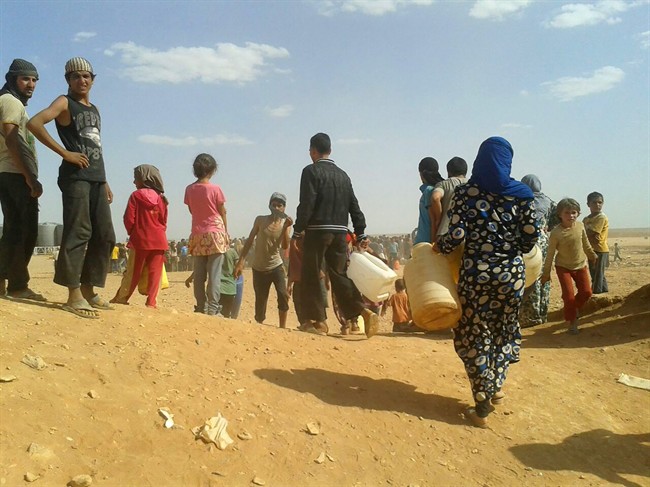Gaps in the security screening of Syrian refugees led to dozens being admitted to Canada without proper vetting, according to a government report obtained by Global News.

The Canada Border Services Agency audit found that changes to screening procedures for Operation Syrian Refugee “introduced some gaps in the security screening process.”
As a result, 39 Syrian refugees who should have undergone comprehensive security checks were not screened before arriving in Canada, although they were recorded as having been.
“The potential impact is that these 39 cases did not receive the necessary security screening and therefore, potential security threats may not have been identified prior to granting admissibility,” the report said.

The auditors also found that, in 150 files, part of the screening process did not occur, meaning that “key information may not have been identified or considered” when approving refugees.
A version of the report, “Audit of Operation Syrian Refugee – CBSA Security Screening,” was posted on the agency’s website last month, but the sections dealing with the gaps were removed as “sensitive information.”
Global News, however, obtained a full version of the document from a source. It said Immigration, Refugees and Citizenship Canada had “committed to follow-up” on the cases identified in the audit.
“The government takes those findings seriously and is working to prevent them in the future,” Scott Bardsley, Public Safety Minister Ralph Goodale’s press secretary, said Thursday.

Get daily National news
He said the CBSA had already implemented one of the audit’s recommendations and another was in the works. The 150 refugees identified as not having been fully screened now have been cleared, he said. “Those checks have now all been done and no concerns were identified.”
As for the 39 more serious cases, he said: “CBSA reviewed these cases and did not find reasonable grounds to believe that any of the individuals were inadmissible on national security grounds.”
Asked why all mention of the “gaps” in screening had been cut from the public version of the audit, Bardsley said reports were reviewed by the CBSA Access to Information branch and redactions were made. “Upon further examination, CBSA is reviewing this process to ensure that its application is in keeping with the government’s commitment to be transparent with Canadians.”
WATCH: Here’s how refugees trying to enter Canada are screened
Michelle Rempel, the Conservation immigration critic, said the way the audit was redacted suggested the government was trying to hide the screening problems.
“Gaps in security screening, they’re not acceptable. To me it shows that they really didn’t have a plan to fulfill this initiative in any sort of orderly way.”
She said the government should not cut corners on security screening and said the audit “begs the question: what else is being missed, especially with regards to the illegal border crossing influx?”
Screening is meant to identify refugee claimants with links to terrorism, war crimes, criminality or organized crime that could make them a threat to Canadians.
The CBSA was responsible for screening the Syrians outside Canada and passing its recommendations to the immigration department, which made the final decision on who was chosen.
The government reassured Canadians the screening was thorough but the CBSA audit found that was not always the case, with “a small number of files with incomplete mandatory security screening system checks.”
While the number of refugees admitted without proper security screening was not large considering the thousands brought to Canada, the report shows there were flaws in the system meant to protect Canadians.
The report said that to meet Prime Minister Justin Trudeau’s election campaign promise to bring in 25,000 Syrian refugees by the end of 2015, changes were made to the screening process.
The screening period was shortened to 96 hours from 30 days, for example, and a new procedure was developed for identifying cases flagged for checks. But the audit found holes.
The 150 cases had not undergone an “open source check,” which involves searching social media, Bardsley said.
The report attributed the 39 other cases partly to a “data entry issue” that meant “the comprehensive check would not have been carried out, as the system would not have transmitted the request to security partners.”
Bardsley said some refugees were also not thoroughly screened because officers had “exercised their discretion when dealing with vulnerable cases” such as the elderly or disabled.
Stewart.Bell@GlobalNews.ca








Comments
Want to discuss? Please read our Commenting Policy first.